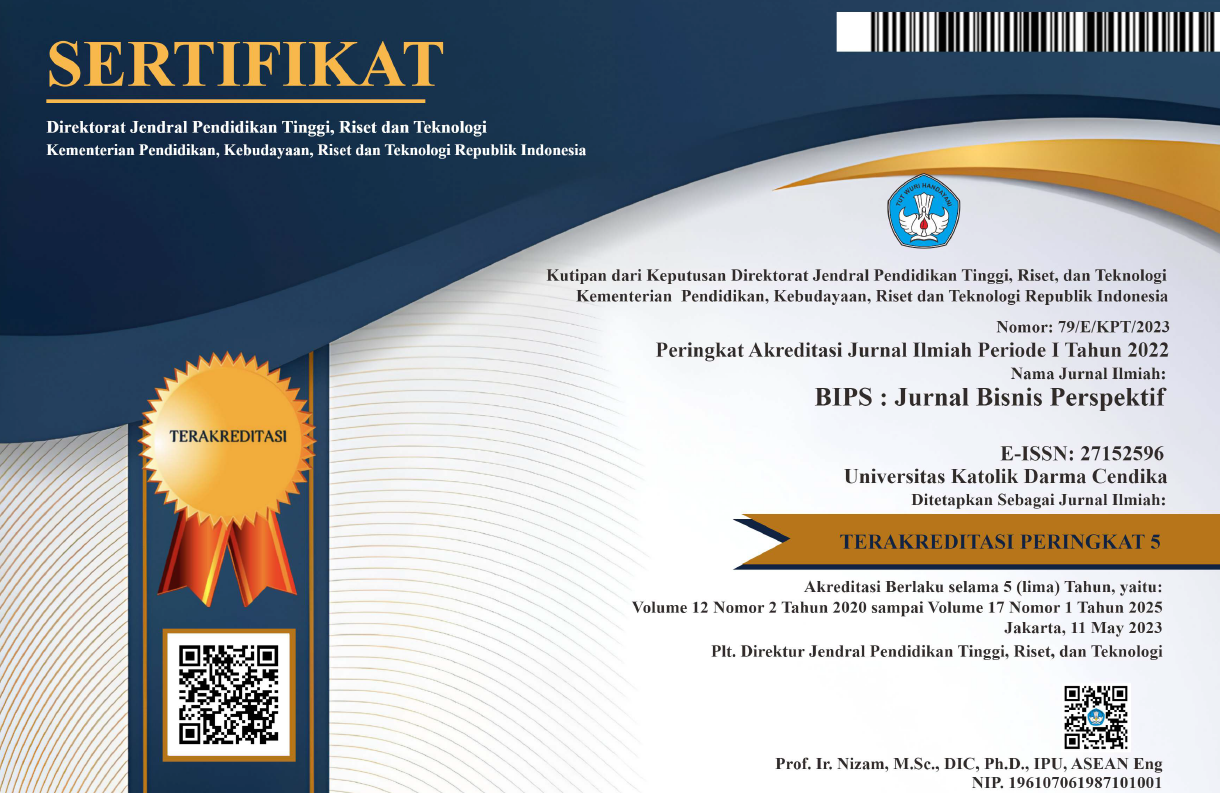Hubungan Perceived Service Quality Dan Loyalitas: Peran Trust Dan Satisfaction Sebagai Mediator
DOI:
https://doi.org/10.37477/bip.v2i1.278Keywords:
perceived service quality, trust, satisfaction, loyaltyAbstract
Customer loyalty is the most valuable asset for the company. Several previous studies find that customer loyalty has a positive effect on company's profitability. But, in today marketplace, managing customer loyalty is a daunting task. Marketer must clearly understand the loyalty concept, so they can find out loyalty's antecedent and manage loyalty from that antecedent. The purpose of this research is to investigate perceived service quality, trust, and satisfaction contribution to the loyalty creation. The object of this research is higher education institution, and the subjects are undergraduate students at Widya Mandala Catholic University. Reliability and validity check find that research instrument has achieved reliability, convergent validity, and discriminant validity criteria. The results support all hypotheses with the exception for perceived service quality-loyalty relationship. Perceived service quality does not have significant direct effect on loyalty. Therefore, perceived service quality does not have direct contribution for loyalty building, the contribution is indirect through satisfaction and trust. The results also find a strong support about satisfaction and trust role as a mediator of perceived service quality-loyalty relationships.
Published
How to Cite
Issue
Section
License
Authors publishing in this journal agree to the following terms:
- The author retains copyright and grants the journal rights of first publication with the work simultaneously licensed under a Creative Commons Attribution ShareAlike License License that allows others to share the work with acknowledgment of the author's work and initial publication in BIP's: Journal of Business Perspectives.
- Authors may include separate additional contractual arrangements for non-exclusive distribution of the published version of the journal (e.g., submit to an institutional repository or publish in a book), with an acknowledgment of the original publication in this Journal.
- Authors are permitted and encouraged to post their work online (e.g., in institutional repositories or on their websites) before and during the submission process, as it can lead to productive exchanges, as well as citations of previously published work.
Each author is expected to complete the copyright process with a document of the originality of the manuscript, the templated document is below:


7.png)


6.png)
2.png)


